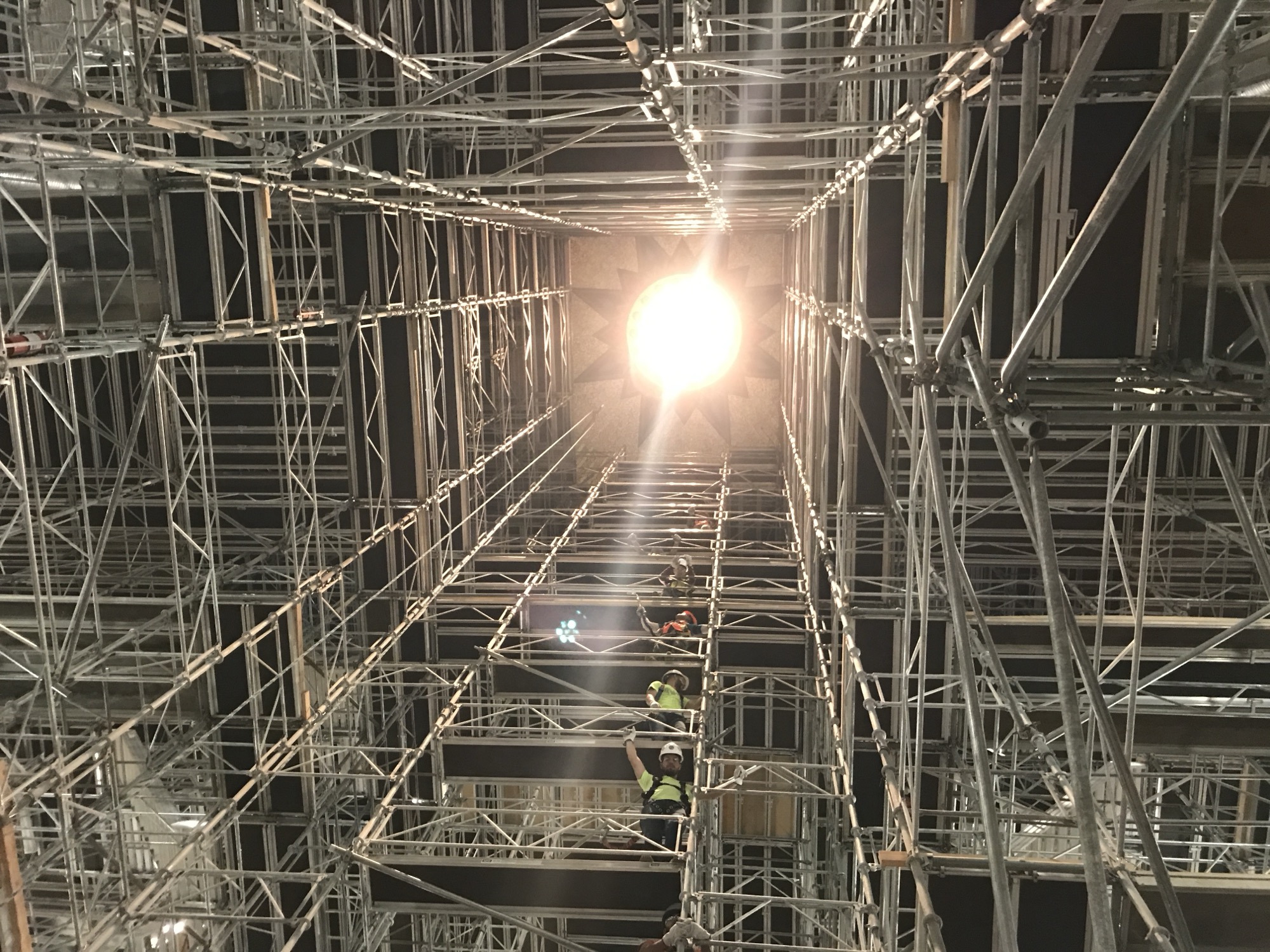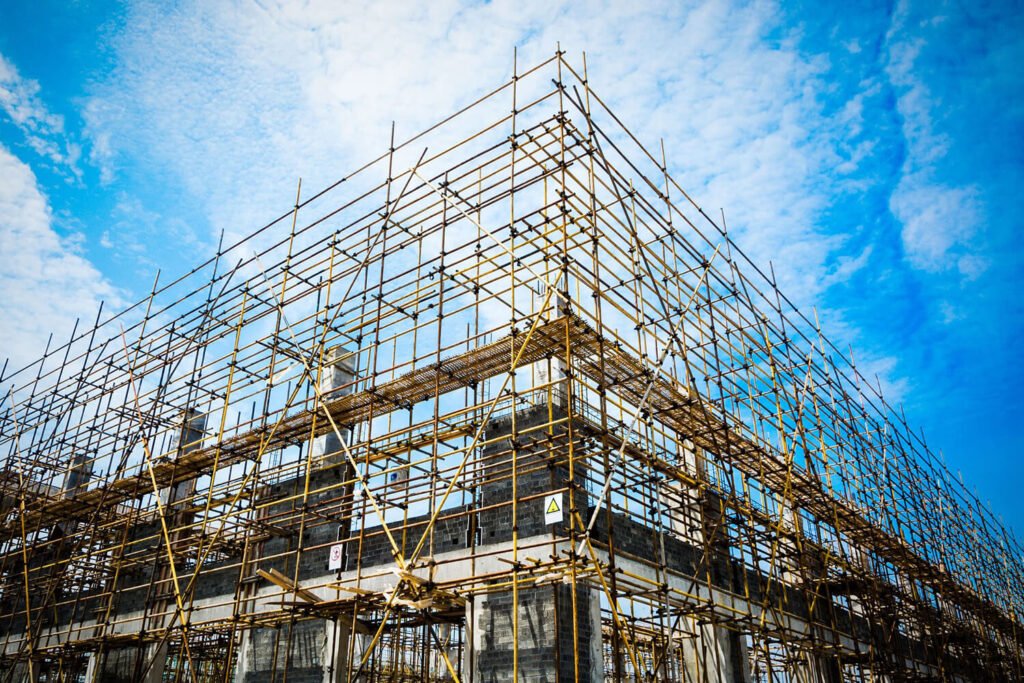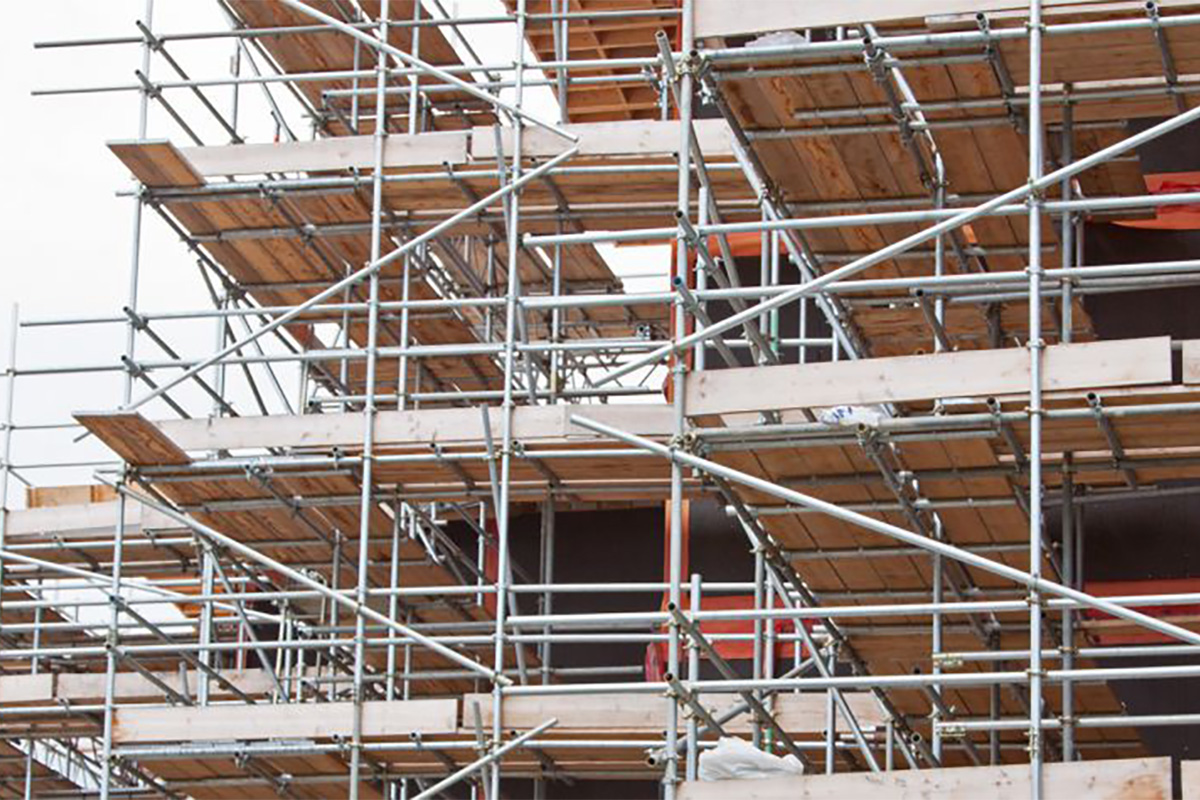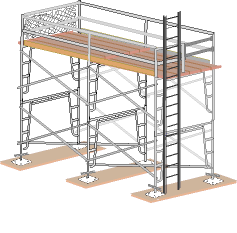Affordable and Professional Scaffolding Cobham Services Available Now
Affordable and Professional Scaffolding Cobham Services Available Now
Blog Article
Checking Out the Numerous Kinds Of Scaffolding Utilized in Construction Jobs
The construction market counts heavily on different types of scaffolding to satisfy specific task demands, each offering unique advantages and applications. Traditional framework scaffolding supplies a durable structure for basic jobs, while suspended scaffolding is crucial for work on high-rise structures.

Conventional Frame Scaffolding
Conventional structure scaffolding is among the most widely used methods in the construction industry as a result of its robustness and flexibility. This system contains vertical and horizontal frames that are constructed to produce a stable system for materials and workers. The main elements consist of upright articles, horizontal journals, and angled braces, which together give a solid framework that can sustain substantial lots.
One of the crucial benefits of conventional framework scaffolding is its adaptability to various building and construction projects, ranging from residential structures to large commercial structures. The modular layout enables for simple setting up and disassembly, making it efficient for both long-lasting and temporary tasks. In addition, the system can be personalized in elevation and size, suiting different building designs and website problems.
Security is critical in scaffolding applications, and standard frame systems are furnished with guardrails and toe boards to stop falls and ensure worker security. Regular examinations and adherence to security policies are important in preserving the honesty of the scaffold (Scaffolding). Generally, traditional structure scaffolding stays a fundamental choice in the construction market, supplying a reputable platform for labor and improving overall project efficiency

Suspended Scaffolding
Put on hold scaffolding provides a special option for construction tasks that require accessibility to raised surfaces, particularly in situations where conventional framework scaffolding may be not practical. This kind of scaffolding is usually suspended from the roof covering or upper degrees of a framework, utilizing a system of platforms, ropes, and wheels to produce a functioning area that can be gotten used to numerous heights.
Among the main advantages of suspended scaffolding is its versatility. It can be conveniently repositioned or lowered to accommodate modifications in building demands, making it suitable for tasks such as home window installation, façade work, and upkeep on high-rise structures. Additionally, the marginal footprint of suspended scaffolding allows for much better use ground room in city environments, where room is often minimal.
Security is an important consideration in the use of suspended scaffolding. Overall, suspended scaffolding supplies a reliable and effective remedy for accessing hard-to-reach areas in different building situations, boosting both performance and security on site.
System Scaffolding
System scaffolding, frequently considered a contemporary service in the scaffolding sector, is composed of pre-engineered parts that can be promptly assembled and adapted for different building and construction jobs. Scaffolding. This kind of scaffolding is identified by its modular layout, which permits convenience and performance on task websites, fitting structural requirements and different heights
Generally made from blog high-strength steel or light weight aluminum, system scaffolding uses enhanced resilience and security. The elements consist of vertical messages, straight ledgers, and diagonal dental braces, which adjoin safely, making sure a durable framework. The style usually integrates standard installations, simplifying assembly and disassembly procedures, thereby reducing labor time and expenses.

Rolling Scaffolding
Rolling scaffolding is a flexible alternative to standard set scaffolding, made for movement and convenience of use on construction sites. This kind of scaffolding contains a system supported by structures with wheels, enabling workers to conveniently transfer it as required. The flexibility function significantly improves efficiency, as it decreases downtime associated with constructing and dismantling repaired scaffolding.
Commonly built from light-weight products such as aluminum or steel, rolling scaffolding offers a durable yet mobile option for tasks calling for constant repositioning - Scaffolding. It is especially advantageous in tasks such as painting, drywall installation, and electric job, where access to different elevations and areas is essential
Security is paramount in rolling scaffolding design, with functions such as securing wheels to stop unexpected activity when being used, and guardrails to protect employees from falls. In addition, lots of versions are adjustable in height, suiting various project requirements.
Cantilever Scaffolding

The design of cantilever scaffolding commonly involves using braces or arms anchored to a building or framework, making it possible for the system to expand outside securely. Security is extremely important; hence, these scaffolds must be crafted to hold up against various loads and ecological conditions. Regular evaluation and maintenance are necessary to make sure structural honesty and employee security.
Cantilever scaffolding is preferred for its convenience and effective use of area, making it a preferred choice in metropolitan environments where area restrictions are typical. In addition, it helps with less complicated accessibility to high altitudes, eventually adding to the general efficiency of building projects. Similar to all scaffolding kinds, correct training and adherence to security criteria are important for employees using cantilever scaffolding.
Conclusion
Traditional frame scaffolding supplies stability, while suspended scaffolding uses convenience for elevated jobs. System scaffolding promotes quick assembly, and rolling scaffolding enhances flexibility for differing work settings.
Standard frame scaffolding supplies a tough foundation for basic jobs, while put on hold scaffolding is vital for work on skyscraper structures.Moving scaffolding is a flexible alternative to traditional fixed scaffolding, designed for movement and ease of usage on building and construction sites. As with all scaffolding types, appropriate training and adherence to safety standards are important for workers making use of cantilever scaffolding.
Traditional framework scaffolding offers stability, while put on hold scaffolding uses versatility for elevated jobs. System scaffolding facilitates quick assembly, and rolling scaffolding boosts flexibility for differing job atmospheres.
Report this page